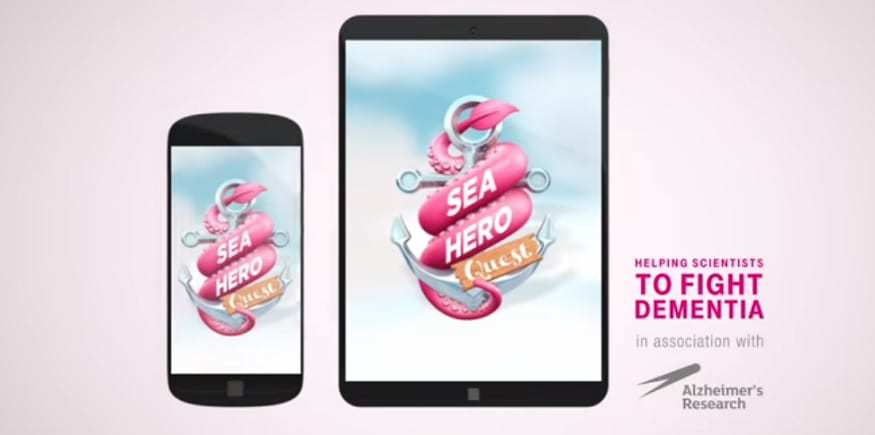The mobile VR game and its app predecessor has provided Alzheimer researchers with valuable data.
In the two years that it has been on the market, Sea Hero Quest VR and the mobile app that came before it, has been producing significant and valuable data for Alzheimer’s research. A recent study has found that the virtual reality (VR) game can help detect those who are genetically at a higher risk of suffering from the disease.
Sea Hero Quest has generated over 1,700 years’ worth of lab-based research.
She Hero Quest first launched as a mobile app three years ago and most recently as Sea Hero Quest VR for mobile. The game was developed by Glitchers in partnership with Deutsche Telekom, Alzheimer’s Research UK, University College London and the University of East Anglia.
Researchers from the University of East Anglia (UEA) recently published results from data collected by the game in the journal PNAS. The researchers claim that via the data they were able to translate every 0.5 seconds of gameplay into valuable data.
Every two minutes of gameplay is reportedly equal to five hours of lab-based research. This, factored in with over three million people downloading and playing the game since its launch three years ago, means that the game has generated over 1,700 years’ with of lab-based research.
The UEA researchers focused on Sea Hero Quest VR data from over 27,000 UK players.
In their study, the team of researchers of UEA focused on data from 27,108 UK players between the ages of 50 and 75. This is the age group considered to be the most vulnerable to the degenerative mental disease. This data was compared with a smaller group of 60 people who were undergoing lab-based genetic testing.
In this lab group, 31 participants carried a gene known as APOE4, which makes a person three times more likely to be affected by Alzheimer’s and potentially develop the disease at younger ages.
According to UEA Professor Michael Hornberger, carriers of the APOE4 gene performed worse on the game’s spatial navigation tasks and took less effective routes through the game’s world.
“This is really important because these are people with no memory problems,” Hornberger said as quoted by gameindustry.biz.
“Meanwhile, those without the APOE4 gene travelled roughly the same distance as the 27,000 people forming the baseline score. This difference in performance was particularly pronounced where the space to navigate was large and open,” he said.
 Hornberger further explained that what the researchers discovered via the Sea Hero Quest VR game data is that they can detect people who are at a genetic risk of Alzheimer’s based on how a person plays the game.
Hornberger further explained that what the researchers discovered via the Sea Hero Quest VR game data is that they can detect people who are at a genetic risk of Alzheimer’s based on how a person plays the game.
